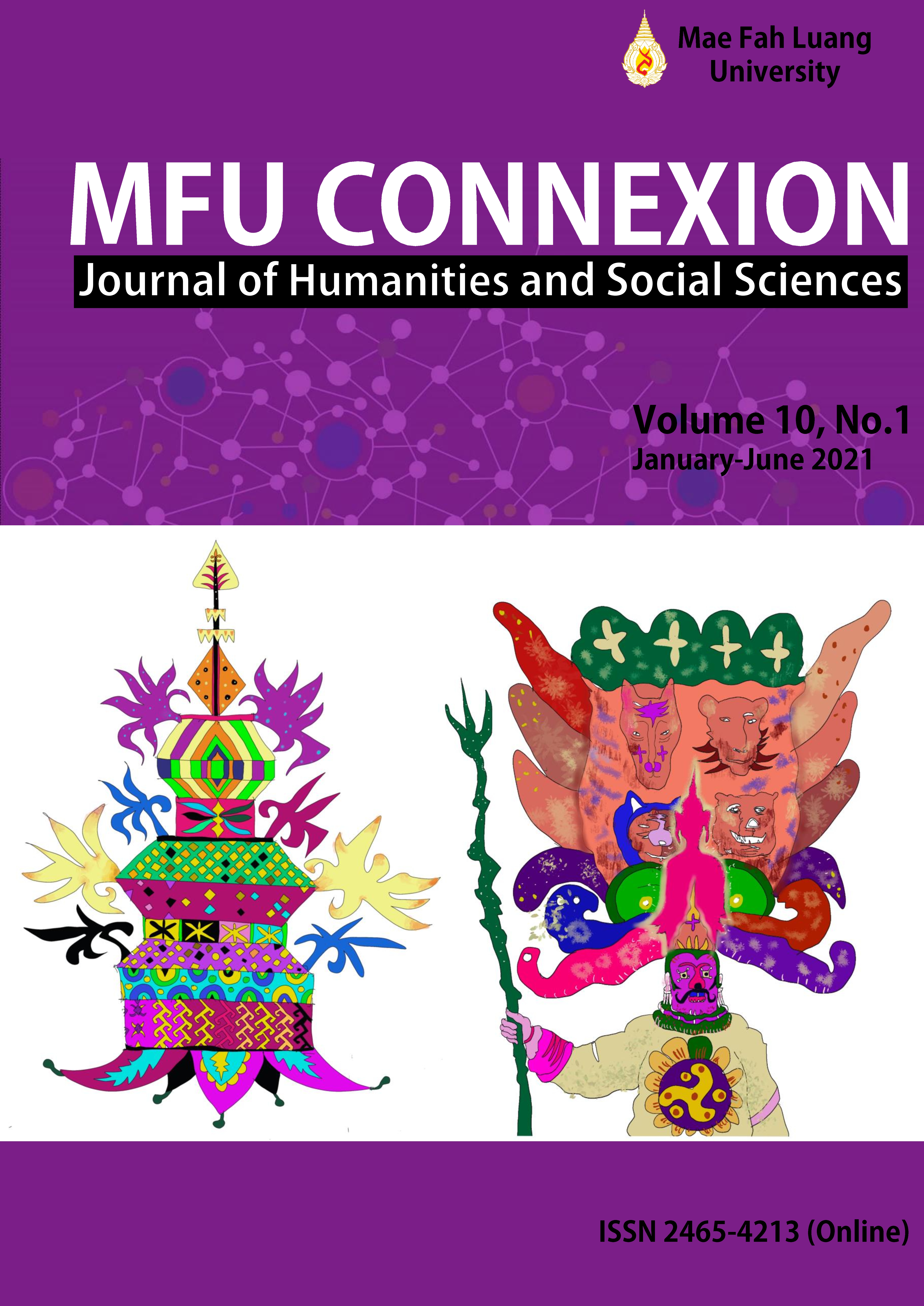Ageing in Place vs. Ageing Relocation and the Elderly’s Behaviours
Main Article Content
Abstract
Since 2010, Thailand has entered an ageing society, with an approximation of 10 percent and above of its population aged over 60 years old. An assumption has been made that by 2030, the ageing population will increase further and Thailand will enter an era of “Ageing Society”. This has led to the preparation of seniors nursing homes to accommodate the increasing number of the elderly population. The property management model for senior housing has changed from being merely a nursing home to an alternative option for investment for retirement. Factors affecting the elderly’s decisions whether to ‘age’ at home (Ageing in Place) or to ‘age’ in nursing homes (Ageing Relocation) are based on the elderly’s own habits and attitudes towards life. A positivist case study research methodology, based on a proactive interview using a clear structured set of questions, was adopted in this research. This research found that factors affecting the decision of the elderly are physical needs, psychological needs and social needs. Whilst most elderly were satisfied with their current accommodation, those in the Ageing Relocation group are mostly childless, whereas those in the Ageing in Place group are mostly those who are attached to their children.
Article Details
Copyright
Connexion: Journal of Humanities and Social Sciences has an exclusive right to publish the accepted articles in any form. However, the author retains the following rights:
1. The right to the ownership of the article;
2. The right to use all or part of the article in his/her other works;
3. The right to re-produce the article for personal use or for use in the author’s organisation, in which case the author must obtain permission from Connexion: Journal of Humanities and Social Sciences;
4. The right to make copies of all or part of the work for educational use or for the author’s use in classroom teaching; and
5. The right to include the work (both the preprinted and printed versions) in an institutional repository.
References
Acton, G. J., & Malathum, P. (2000) Basic need status and health-promoting self-care behavior in adults, Western Journal of Nursing Research, 22(7), 796-811, doi: 0.1177/01939450022044764
Boonpadung, S. (2011) Improving the quality of life of the elderly in school-based training on the sufficiency economy (การพัฒนาคุณภาพชีวิตผู้สูงอายในท้องถิ่นโดยใช้โรงเรียนเป็นฐานตามหลักเศรษฐกิจพอเพียง), Bangkok: Suan Sunandha Rajabhat University. (in Thai)
Christensen, D. L., Carp, F. M., Cranz, G. L., & Wiley, J. A. (1975) Objective housing indicators as predictors of the subjective evaluations of elderly residents (1), Journal of Environmental Psychology, vol. 12, no. 3, pp. 225-236.
Chula Unisearch. (2017) A project to study the model of service, administration and accommodation management for the elderly (โครงการศึกษารูปแบบการให้บริการการบริหารและการจัดการที่พักสำหรับผู้สูงอายุ), Bangkok: Chula Unisearch. (in Thai)
Department of Business Development (DBD). (2017) Commerce accelerates to solve the problem of shortages and standards of elderly care personnel (พาณิชย์เร่งแก้ปัญหาการขาดแคลนและมาตรฐานบุคลากรดูแลผู้สูงอายุ), Available: https://dbd.go.th/news_view.php?nid=469404775 [17 December 2020] (in Thai)
Gao, S., & Cheng, Y. (2020) Older people's perception of changes in their living environment after relocation: A case study in Beijing, China, International Journal of Environmental Research and Public Health, vol. 17, no. 6, doi: 10.3390/ijerph17062021
Gloria, G., & Charmaine, S. (2010) Ageing, ageism and abuse, Available: https://www.sciencedirect.com/book/9780123815088/aging-ageism-and-abuse?via=ihub= [17 December 2020]
Golant, S. M. (2020) Aging in place - or trapped in place? Aging Today, pp. 7-10.
Goldman, S. L. (1988) The humanities in science and engineering education, Bulletin of Science, Technology & Society, vol. 8, no. 1, pp. 3-5.
Jenobrom, S. (1998) Vision for the elderly and non-formal education for the Thai elderly (วิสัยทัศน์ผู้สูงอายุและการศึกษานอกระบบสำหรับผู้สูงอายุไทย), Bangkok: Nichin Advertising Group. (in Thai)
Jorgensen, D., Arksey, H., Senior, H., Parsons, M., & Thomas, D. (2009) Why do older people in New Zealand enter residential care rather than choosing to remain at home, and who makes that decision?, Ageing International, vol. 34, no. 1-2, pp. 15-32, doi: 10.1007/s12126-009-9034-7
Kaplan, D. B., Andersen, T. C., Lehning, A. J., & Perry, T. E. (2015) Aging in place vs. relocation for older adults with neurocognitive disorder: Applications of wiseman’s behavioral model, Journal of Gerontological Social Work, vol. 58, no. 5, pp. 521-538, doi: 10.1080/01634372.2015.1052175
Lee, E. S. (1966) A theory of migration, Demography, vol. 3, no. 1, pp. 47-57.
Miles, M. B., & Huberman, A. M. (1994) Qualitative data analysis a methods sourcebook, 2nd edition, Thousand Oaks, CA: Sage.
Patrick, C., & Jean, M. (1993) Social support and health, Journal of Advanced Nursing, vol. 18, no. 2, pp. 203-210
Poromyen, S. (2012) The great flood crisis and the elderly: Lessons to find a way out (วิกฤตมหาอุทกภัยกับผู้สูงอายุ: บทเรียนที่ต้องหาทางออก), Available: https://kb.hsri.or.th/dspace/handle/11228/3602?src=%2Fdspace%2Fhandle%2F11228%2F1%2Fdiscover%3Frpp%3D10%26etal%3D0%26group_by%3Dnone%26page%3D10%26filtertype_0%3Dsubject%26filter_relational_operator_0%3Dequals%26filter_0%3DRoutine%2520to%2520research%26locale-attribute%3Dth&offset=3&firstItem=&lastItem=&locale-attribute=th [17 December 2020] (in Thai)
Rubin, H. J., & Rubin, I. S. (2011) Qualitative interviewing: The art of hearing data, 3rd edition, Thousand Oak, CA: SAGE Publications.
Severinsen, C., Breheny, M., & Stephens, C. (2016) Ageing in unsuitable places, Housing Studies, vol. 31, no. 6, pp. 714-728.
Tang, F., & Pickard, J. (2008) Aging in place or relocation: Perceived awareness of community-based long-term care and services, Journal of Housing for the Elderly, vol. 22, no. 4, pp. 404-422, doi: 10.1080/02763890802458429
Thai Gerontology Research and Development Institute. (2020) Housing policy and management for the elderly in Thailand (นโยบายและการจัดการที่อยู่อาศัยสำหรับผู้สูงอายุในประเทศไทย), Available: https://thaitgri.org/?p=39256 [17 December 2020] (in Thai)
Vanleerberghe, P., Witte, N., Claes, C., Schalock, R., Verté, D., De Witte, N., & Schalock, R. L. (2017) The quality of life of older people aging in place: A literature review, Quality of Life Research, vol. 26, no. 11, pp. 2899-2907, doi: 10.1007/s11136-017-1651-0
WHO Centre for Health Development (Kobe, Japan). (2004) A glossary of terms for community health care and services for older persons, Kobe, Japan: WHO Centre for Health Development.
Wiseman, R. F. (1980) Why older people move: Theoretical Issues, Research on Aging, vol. 2, no. 2, pp. 141-154.
Wiseman, R. F., & Roseman, C. C. (1979) A typology of elderly migration based on the decision making process, Economic Geography, vol. 55, no. 4, pp. 324-337.
Yin, R. K. (2003) Case study research: Design and methods, 3rd edition, Thousand Oaks, CA: Sage.


